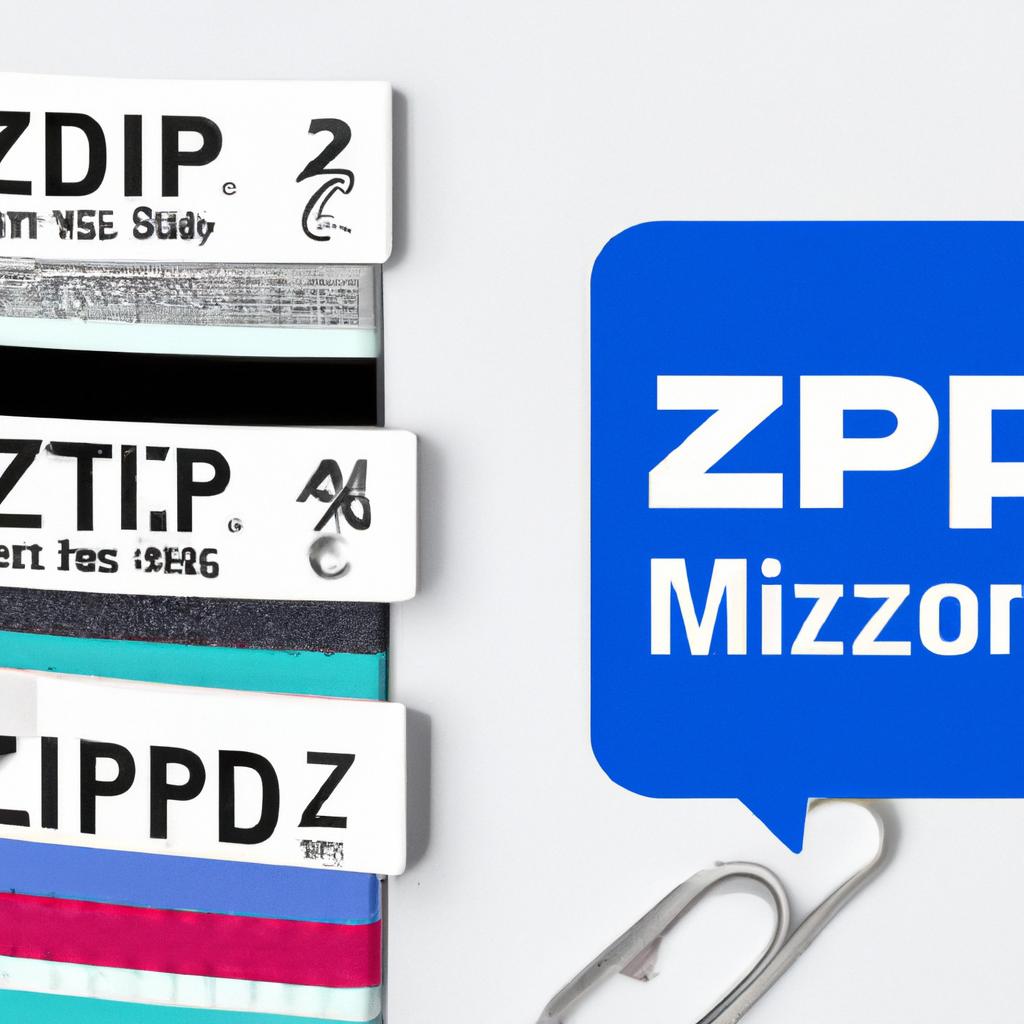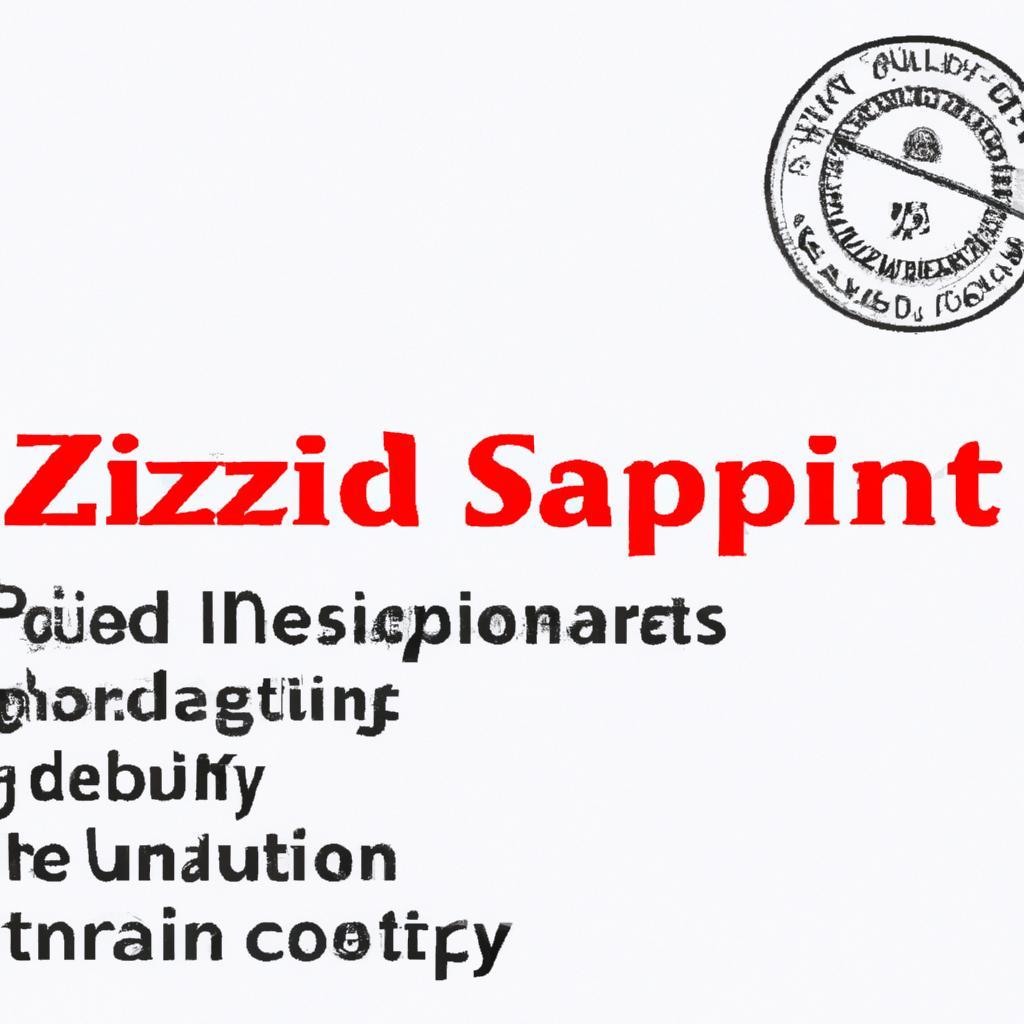In a world where consumers increasingly gravitate towards authenticity and transparency, the integrity of a brand transcends mere logos and marketing slogans. It is woven into the very fabric of its identity, reflecting not just the quality of its products but also the ethical standards it upholds. Among the many factors that contribute to this integrity, the respect for zip code protected labels stands out as a vital, yet often overlooked, element. These labels, designated to signify geographic origin and authenticity, are not just regulatory markers; they represent a commitment to quality and tradition that resonates deeply with consumers. As businesses navigate the complexities of a global marketplace, understanding and honoring these protected labels is essential to fostering trust and loyalty. In this article, we delve into the significance of safeguarding brand integrity through the responsible use of zip code protected labels and explore how this respect can pave the way for enduring connections between brands and their audiences.
Understanding Zip Code Protected Labels and Their Role in Brand Integrity
Zip Code Protected Labels serve as an essential safeguard for businesses, ensuring that products maintain their authenticity and origin. When brands adhere to these geographic designations, they effectively communicate their commitment to quality and integrity. Such labels not only inform consumers about the provenance of a product but also create a sense of trust and legitimacy. The importance of respecting these labels cannot be overstated; by doing so, companies reinforce their brand ethos, making it clear that they value transparency and consumer awareness.
Moreover, the role of Zip Code Protected Labels extends beyond mere branding; it also supports local economies and fosters community pride. For brands, compliance with these designations can lead to recognizability, helping consumers make informed choices. To better illustrate the significance of these labels, consider the following benefits:
- Brand Differentiation: Unique labeling helps products stand out in a saturated market.
- Consumer Trust: Transparency fosters loyalty, making consumers feel secure in their purchasing decisions.
- Market Stability: Protecting local products promotes economic resilience within communities.
the strategic implementation of Zip Code Protected Labels not only boosts brand integrity but also creates a meaningful connection between products and their origin. The following table exemplifies various Zip Code Protected Labels and their associated products, showcasing the diversity and impact of these designations in the marketplace:
| Zip Code | Protected Label | Associated Product |
|---|---|---|
| 90210 | Bev Hills Organic Honey | Honey |
| 02139 | Cambridge Local Coffee | Coffee Beans |
| 60614 | Chicago Artisan Bread | Bread Loaves |

Strategies for Upholding Brand Value Through Adherence to Geographic Designations
Maintaining the sanctity of geographic designations is crucial for brands committed to preserving their integrity and reputation. By ensuring adherence to these labels, companies not only protect their identity but also reinforce the trust of consumers who value authenticity. Key strategies include:
- Education and Training: Equip employees with knowledge on the significance of geographic labels and train them on compliance.
- Regular Audits: Conduct periodic checks to ensure that products meet the required standards of their geographic designation.
- Engaging with Communities: Foster relationships with local producers and stakeholders to uphold the quality that geographic labels promise.
- Transparency in Marketing: Clearly communicate the origin and qualities of products, reaffirming the geographic association.
Utilizing a multi-layered approach can create a formidable framework for protecting brand value. Consider implementing technology solutions, such as blockchain, to trace the geographic journey of products. These systems not only enhance accountability but also bolster consumer confidence. Below is a simple comparison table illustrating traditional vs. tech-driven methods:
| Traditional Methods | Tech-Driven Methods |
|---|---|
| Manual tracking of products | Blockchain for comprehensive tracking |
| Limited consumer engagement | Real-time updates and interaction |
| Potential for misinformation | Built-in verification processes |
By implementing these strategies, brands can successfully navigate the complexities associated with geographic designations, thereby safeguarding their integrity in an increasingly discerning market.

Building Consumer Trust by Honoring Regional Branding Practices
Consumers today are increasingly aware of the value that regional branding brings to products. When brands honor the integrity of zip code protected labels, they not only reinforce their commitment to quality but also cultivate deeper connections with their audience. By respecting these local identifiers, companies can showcase a product’s authenticity, which becomes a powerful differentiator in a crowded marketplace. **Trust flourishes when consumers feel that their cultural heritage and regional pride are acknowledged and celebrated.** This compliance goes beyond mere marketing tactics; it forms the backbone of sustainable consumer relationships built on trust.
The benefits of honoring regional branding practices extend beyond consumer trust and reputation management. Implementing these practices can foster a sense of community and belonging among consumers, leading to loyal brand advocates. Consider the following advantages:
- Enhanced Brand Loyalty: Consumers are more likely to stay loyal to brands that resonate with their location.
- Positive Word of Mouth: Satisfied consumers often share their appreciation for brands that respect local cultures.
- Increased Market Reach: Compliance with regional branding can open doors to local markets that are otherwise resistant to outside influence.
Brands that successfully engage in responsible regional branding practices can further achieve a competitive edge while fostering deeper connections with consumers. A simple table illustrating key principles of regional branding compliance might look like this:
| Key Principle | Description |
|---|---|
| Authenticity | Ensure products reflect genuine local processes and traditions. |
| Transparency | Communicate clearly about sourcing and production to build trust. |
| Community Engagement | Involve local stakeholders in brand decisions to foster relationships. |
Key Takeaways
In a landscape where authenticity and trust are paramount, the significance of respecting zip code protected labels cannot be overstated. As we conclude our exploration of this vital topic, it becomes clear that safeguarding brand integrity goes beyond mere compliance; it is a commitment to honoring the heritage, quality, and reputation associated with specific regions. By acknowledging and protecting these unique identifiers, brands not only enhance their credibility but also foster a deeper connection with consumers who seek genuine experiences.
As businesses navigate an increasingly competitive market, understanding the nuances of zip code protections can provide a crucial advantage. It empowers brands to tell their story with authenticity, reinforces consumer confidence, and ultimately contributes to a richer tapestry of local economies and traditions. In a world where labels are more than just tags, they are a narrative waiting to be told, one that deserves respect, recognition, and protection.
As we move forward, let us champion the cause of brand integrity and celebrate the diverse flavors and traditions that each zip code represents. Together, we can ensure that respect for protected labels becomes a foundational principle in the crafting of brands that not only stand out but stand the test of time.
